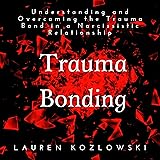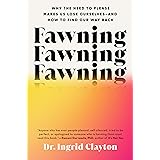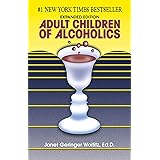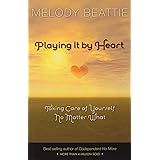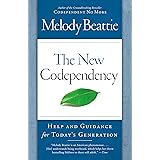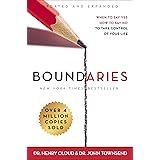The profound and often devastating journey through gambling addiction is a narrative frequently shrouded in silence and shame. As shared in the accompanying video, the deeply personal account of one individual highlights the significant financial and emotional toll this condition exacts. From an initial life-altering win of £64,000 at just 16 years old, a rapid descent into compulsive gambling behavior was initiated, ultimately leading to cumulative losses estimated at £120,000 over an 11-year period.
This powerful testimony offers crucial insights into the psychological grip of addiction and the complex path toward recovery. The individual’s experience serves as a stark reminder that what begins as a perceived stroke of luck can swiftly transform into an uncontrollable force, reshaping not only one’s financial landscape but also their entire sense of self and purpose.
The Deceptive Allure of Early Wins and Rapid Decline
The speaker’s experience, beginning with a substantial win from a modest 50p bet, perfectly illustrates how gambling addiction can take root. The exhilaration of such a victory is often described as feeling “top of the world,” creating a powerful reinforcement loop that erroneously links gambling with success and newfound financial freedom. This initial rush can foster a dangerous delusion of skill or special fortune, setting the stage for future, more reckless engagement.
Following this early success, a relentless pursuit of similar highs was observed. The individual’s mindset shifted, becoming convinced of an inherent ability to manipulate outcomes and consistently win. This cognitive distortion, where random events are perceived as controllable or predictable, is a hallmark of developing problem gambling. The journey quickly transitioned from a perceived path to wealth to a spiral of significant financial distress, initially resulting in losses of approximately £40,000, followed by an additional £80,000 over more than a decade.
The Pervasive Psychological Grip of Addiction
Addiction, as articulated by the speaker, is felt as “a massive grasp” that relentlessly holds its subject. It compels individuals to exhaust every other option to continue their engagement, even when the consequences are dire. During the active phase of gambling, a profound delusion often persists, making the individual believe that the activity is genuinely beneficial or satisfying, despite mounting evidence to the contrary.
This internal conflict between the perceived ‘good’ of gambling and its destructive reality forms a central struggle for those affected. The illusion of control and the chase for past highs become overwhelming, eclipsing rational decision-making and leading to increasingly desperate measures. The persistent belief that “this time will be different” or that a single large win can rectify all past losses fuels the cycle, often exacerbating financial and emotional damage.
Financial Ruin and Desperate Measures
The financial impact of a gambling addiction can be catastrophic, as evidenced by the speaker’s account of having “zero pennies” in their bank account at one point. The relentless pursuit of funds to continue gambling often leads to precarious situations, including the accumulation of significant debt. A particularly stark example of this desperation was revealed when six payday loans were acquired within a mere seven days during 2023. These high-interest loans, often taken under false pretenses about their use, represent a common yet dangerous tactic employed by individuals struggling with gambling problems.
The speaker’s subsequent employment as a Digital Comms Officer for a gambling harms charity marks a significant shift, demonstrating a move towards recovery and a desire to contribute positively to the field. This change in professional direction underscores the personal transformation that can occur when individuals confront their addiction and channel their experiences into meaningful work, providing a contrast to a previous marketing role that was lost due to the addiction.
The Emotional and Mental Health Toll
The chronic stress and overwhelming guilt associated with gambling addiction inevitably take a heavy toll on mental health. The speaker openly shared struggles with anxiety, depression, and significant sleep disturbances. The private torment of these feelings, particularly “when I’m alone with my thoughts,” highlights the isolating nature of addiction and the intense shame that often accompanies it. The physical manifestation of this distress was even noted, with the speaker observing how unwell they appeared during earlier interviews.
Furthermore, the cycle of recovery and relapse can be incredibly draining, leading to a state of profound exhaustion. This “monotonous recovery, relapse, recovery, relapse process” was described as reaching a “crisis point,” where thoughts of “exiting stage left” were entertained. This illustrates the severe psychological burden and the erosion of hope that can occur when individuals repeatedly attempt to break free from the addiction’s grasp, only to fall back into its trap.
The Crucial Role of Support Systems and Personal Milestones
For many individuals navigating the complexities of gambling addiction recovery, the steadfast support of family and loved ones is invaluable. The speaker consistently acknowledged the unwavering strength and empathy provided by their parents, who, despite not fully comprehending the nuances of the addiction, recognized it as an illness requiring compassionate support. This external lifeline can often be the anchor during turbulent periods, providing the emotional sustenance necessary to persist in recovery efforts.
Significant life events, such as the loss of a loved one, can also serve as powerful catalysts for reflection and renewed commitment to recovery. The passing of the speaker’s grandmother prompted a deep introspection into past choices, particularly the time spent gambling instead of cherishing family moments. This realization about missed opportunities can be a profound motivator, reinforcing the desire to live a full and present life, free from the constraints of addiction. The sentiment that the grandmother “would just want me to be myself again, to be whole” encapsulates this transformative understanding.
Redefining Wealth: Peace and Contentment in Recovery
The journey from active addiction to a state of recovery involves a significant re-evaluation of personal values and priorities. Initially, the speaker, like many others, was deluded by the idea that gambling would lead to material wealth—a house, a nice car. However, the lived experience revealed the opposite truth: genuine financial stability and the ability to enjoy life, such as going on holiday, became possible only through abstinence from gambling. This shift highlights a fundamental reorientation from chasing monetary gains through risk to building sustainable well-being.
Ultimately, recovery is described not as the pursuit of extreme happiness or material riches but as the attainment of “contentment” and “peace.” The relief from daily, self-imposed stress is equated with being a millionaire; this deep internal calm is considered the ultimate form of wealth. The experience of simply being a “normal 28-year-old” who feels “whole again” signifies the true triumph over gambling addiction, demonstrating that genuine richness is found not in a bet, but in a life lived with tranquility and purpose.


